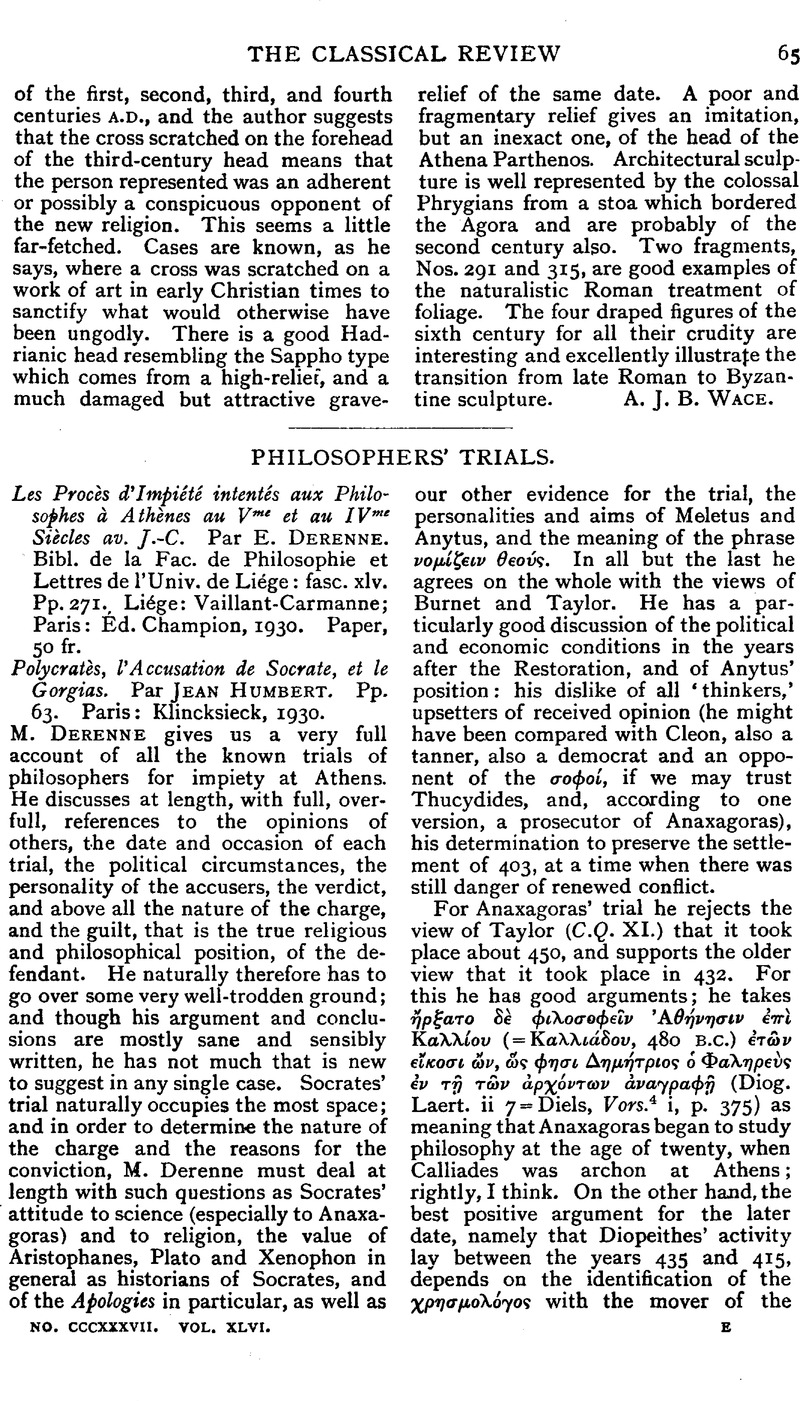No CrossRef data available.
Article contents
Philosophers' Trials - Les Procès d'Impiété intentés aux Philosophes à Athènes au Vme et au IVme Siècles av. J.-C. ParE. Derenne. Bibl. de la Fac. de Philosophie et Lettres de l'Univ. de Liége: fasc. xlv. Pp.271., Liége: Vaillant-Carmanne; Paris: Ed. Champion, 1930. Paper, 50 fr. - Polycratès, l'Accusation de Socrate, et le Gorgias. ParJean Humbert. Pp. 63. Paris: Klincksieck, 1930.
Published online by Cambridge University Press: 27 October 2009
Abstract

- Type
- Reviews
- Information
- Copyright
- Copyright © The Classical Association 1932
References
66 1 Still less certain is the identification with the χρησμολγος who was consulted in 367 at Sparta as to the successor to Agis; neither Xenophon nor Plutarch calls the latter an Athenian.
Derenne answers one of Taylor's arguments, that Plato never represents Socrates as having been in personal contact with Anaxagoras, as follows: ‘Platon avait peut-être d'excellentes raisons de ne pas présenter Socrate en relations avec Anaxagore. Sans doute ne se souciait-il guère de mettre en scène Socrate conversant avec un astronome condamné pour impiété, alors que l'on avait précisément reproché a son maître de s'occuper de météorologie et d'astronomie.’ This must be nearly the thinnest argument on record; but it can be matched: for example, by Beloch in support of his view that there was a large Spartan force at Thermopylae: ‘und endlich: würde die Inschrift so viel Wesens davon machen, dass sie τοῖς κενων ῥμασι πειθμενοι gefallen wären, wenn sie nicht Kameraden gehabt hätten, von denen man das nicht rühmen konnte?’


